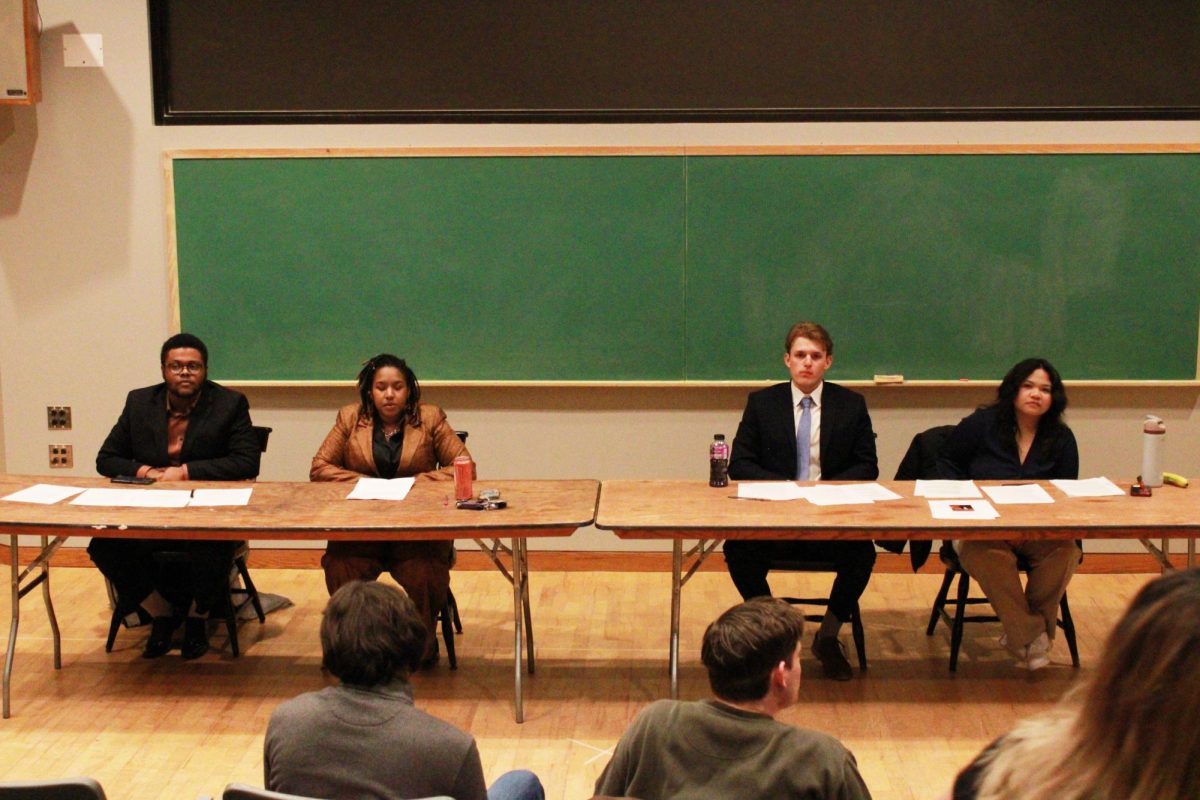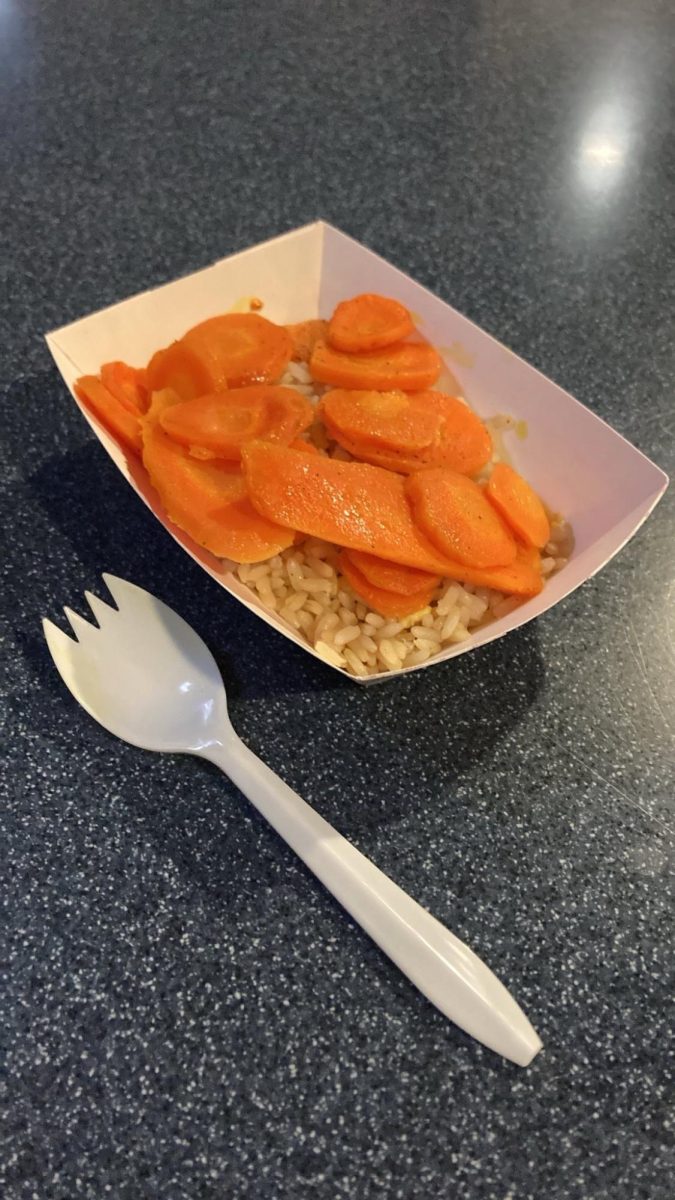Candidates vie for chance to lead student government
By DAN BAUER
Editor-in-chief of Web
bauerd@allegheny.edu
Across the board, candidates for Allegheny Student Government president and vice president are looking to rally the discontents. Each ticket expressed frustration over what they perceived as the administration not taking students seriously. Charlie Watkins, ’13, called the administration’s passing of the four-year on-campus residency requirement “unacceptable.” Alexis Nielson, ’14, felt that ASG often “rolled over” on key issues, like last year’s “March Against Hate.” Tyler Gund, ’13, said that, in many ways, ASG currently acts as a “student-run club” instead of a student government that has “an impact on administrative changes.”
Both the Nielson/Soleim and the Gund/Cordell tickets touted their experience. Soleim pointed to the Class of 2014’s long-term intiatives, such as its push for Fair Trade products on campus, as proof of leadership. Cordell noted that she was the only member of cabinet running, saying that experience is what makes her ticket “stand out.” Mike Waine, ’14, on the other hand, touted his outsider status, noting that he knows firsthand how difficult it might be for organizations to work with ASG.
Each ticket also promised to better represent student opinion. “Our wants are [the students’] wants,” said Cordell.
“We’re trying to make this a better place for people who go to this school,” said Waine. “I like you people.”
Soleim spoke of a variety of methods to reach out more effectively to the student body, most notably the development of a social media platform via Ning.com that would allow for blogging and open discussion without requiring students to leave their homes.
Primary voting starts via WebAdvisor on Monday at 10 a.m. and ends on Tuesday at 4 p.m. The tickets that pass the primaries will participate in a debate in the Campus Center lobby on Feb. 13 at 8:30 p.m. the following Monday. General election voting will begin on Tuesday, Feb. 21 and last through 4 p.m. the next day.
Gund/Cordell
Q: What are you going to change?
TG: ASG needs a framework where senators feel comfortable bringing resolutions up as a voice against the administration. We want actual documentation.
Q: What is the function of ASG to you?
SC: Right now, instead of putting forth ideas, we react to what the administration gives us. It shouldn’t be that. We should be able to represent students’ wants.
Q: What makes you the best candidates?
TG: Experience. I think we have the most diverse range of experience between us.
SC: Our experience makes us stand out. I am the only person on cabinet that is running.
Nielson/Soleim
Q: What are you going to change?
CS: We want to have transparent discussions. The biggest problem right now is that [our Senate meetings] are administrative.
Q: What is the function of ASG to you?
CS: ASG right now is essentially a glorified club. We’re a club that gives the other clubs money. One of the biggest ways ASG can transform is to become the face of change.
Q: What makes you the best candidates?
AN: I see so much potential for what we can do for the students on campus and I don’t think we’ve tapped into that at all. We definitely have more power to help make this campus an institute of change.
Watkins/Waine
Q: What are you going to change?
CW: I’m tired of the administration not listening to… any student run organizations.
Q: What is the function of ASG to you?
MW: ASG is supposed to be the voice of the students. I’d like to make sure it’s not just the voice of the students in the room every Tuesday [at the Senate meeting].
Q: What makes you the best candidates?
CW: We are a tag team that is a force to be reckoned with. We work very well together. It’s going to be vital that we’re able to be on the same page.








